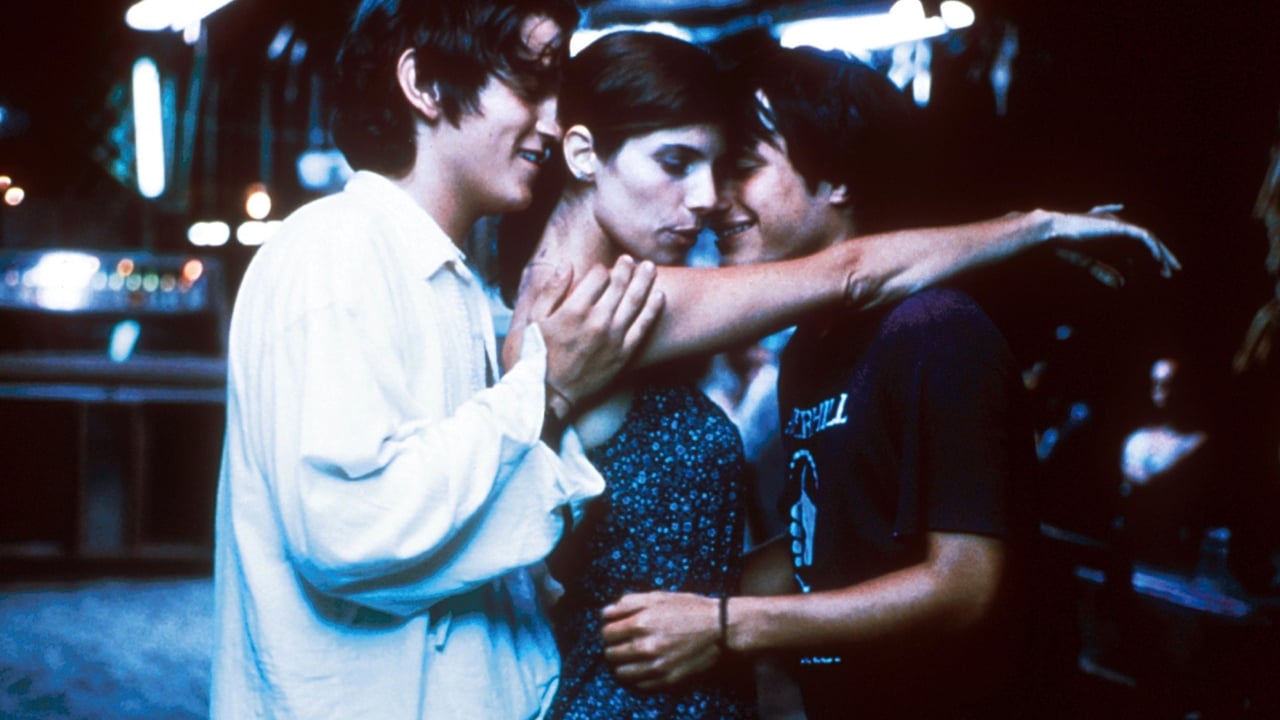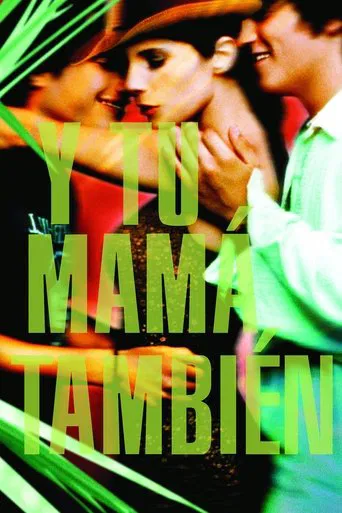

disgusting, overrated, pointless
... View MoreClever and entertaining enough to recommend even to members of the 1%
... View MoreI think this is a new genre that they're all sort of working their way through it and haven't got all the kinks worked out yet but it's a genre that works for me.
... View MoreThere is, somehow, an interesting story here, as well as some good acting. There are also some good scenes
... View MoreY tu mama también is an interesting film that fully embodies the classic, if stereotypical, coming-of-age tale. The road trip setting allows for a great variety of locations, which show several different parts of Mexico and several different subcultures, from busy urban Mexico City to an old woman alone on the side of the road, grieving the death of her great granddaughter. The narration, too, interrupts the story at appropriate times to broaden the audience's perspective and give more depth not only to the characters' personal histories, but to the political and social climate of the country. This is not a distraction from the present antics and drama of the protagonists; rather, it helps to give their relatively inconsequential story more meaning. For much of the movie, this is effective rather than melodramatic. Towards the end of the movie, these little narrated pieces start to feel excessively sad, even if they are realistic. The grim future of the fishing family from the beach is revealed: within a few years they will be trapped in the city, having lost their fishing business pursuing a bigger dream which was ultimately unsuccessful. After their trip ends, the rest of the movie is equally sad. Luisa's death feels pointless; the fact that the audience hears about it secondhand reduces her role in the movie from protagonist to adventure catalyst. The narrator reveals that Tenoch and Julio lose touch as well, although it is not explained why or what happened. The audience is meant to interpret this turn of events without much of a basis for it, as the rest of the movie is spent building their relationship, revealing flaws, and repairing them. The last scene of the movie is one in which Julio and Tenoch run into each other in the street and decide to stop for a cup of coffee. They part ways and never see each other again. This is an unsatisfying ending to an intense, emotionally charged story. The individual moments and narrated pauses in time in Y tu mama también were charming and intriguing, and were generally more satisfying than the movie as a whole.
... View MoreThe way Alfonso Cuaron shifts from a Children's novel adaptation (A Little Princess) to a classic novel adaptation (Great Expectations) to an adult road-trip movie is really fascinating. 'Y Tu Mama Tambien' is one of my favourite road-trip movies, but to call it just a road-trip movie would really be an understatement; not only is it a thrilling journey of sexual exploration, but also a nuanced exploration of some of the most pressing socio-economic issues of our time. The narrator gives us interesting character histories, and intriguing but haunting societal insights which make the story quite gripping, and makes Mexico a character as well. Other than that, as critic Roger Ebert says, 'it (the movie) is about the fragility of life and the finality of death.' And the film is funny as hell; its humour is quite well-placed. It takes the genre of teen sex-comedy to completely new heights.Class-division really plays an important role in establishing relationships; even in the best of friendships, there's always a deep-seated impact it has. No matter how close we are to someone, we always keep a few things secret. A free-spirited road-trip cum sexual adventure boils down to a night where true feelings and pinions come out in the open; things are never the same after that.The three lead actors, Gael Garcia Bernal, Maribel Verdu and Diego Luna, are really talented, and given riveting performances. Other than the three characters and Mexico, we invisibly become a part of their journey and their lives. The cinematography is spectacular, and captures Mexico with such elegance. The one-shot scene towards the end, in the bar, which starts with conversation and ends with a dance, is quite a remarkable sequence. The passionate kiss which comes after this scene is sensual and memorable.The film is quite observant, doesn't compromise anywhere with its storytelling, and doesn't take any moralistic stance on any aspect; that's what makes the film so gripping and compelling.
... View MoreIn Mexico, two teenage boys and an attractive older woman embark on a road trip and learn a thing or two about life, friendship, sex, and each other.This film is an unusual blend of road movie, coming of age film, crude sexual comedy and even a bit of political commentary (though this last bit is quite subtle and easily ignored). This is all very effective, making it both commercially appealing and critically acclaimed. One suspects that it has become a popular film for teenage boys.Looking back over a decade later, one cannot help but see this film and wonder how Cuaron was granted the director's chair for "Harry Potter" (though, to be fair, other directors from the series had some controversial films about children, too). And the difference between this film and "Gravity" is world's apart.
... View MoreAs a huge fan of Alfonso Cuaron (well, maybe not huge) I felt like I owed it to him to give this a go. It's incredibly entertaining, sort of like a road-trio film that garnered a lot of controversy (and you can see why). The lead performances from the males are very good, especially Garcia Bernal. Maribel Verdu also gives a really solid portrayal here, although for some reason Diego Luna doesn't stick as much in the material. He seems out of place for whatever reason. I don't think it's Cuaron's best film, but it doesn't need to be. This is really absorbing, intriguing cinema that, at its best, provides a form of discussion for film buffs. Recommended.
... View More